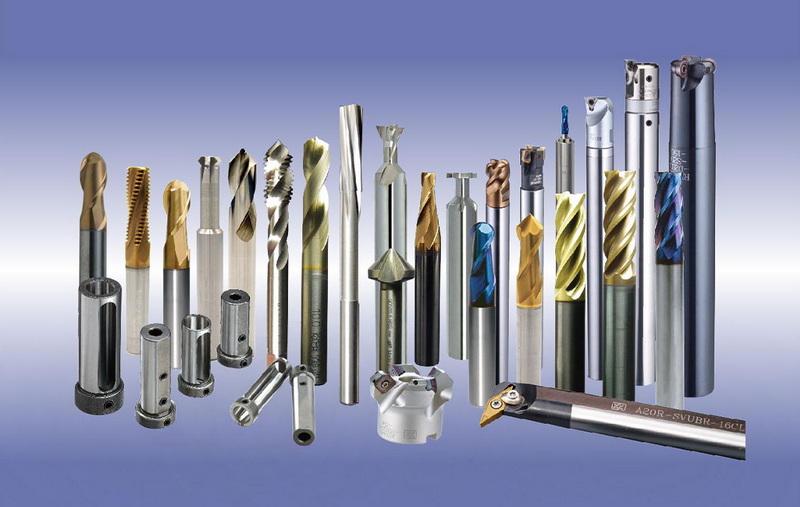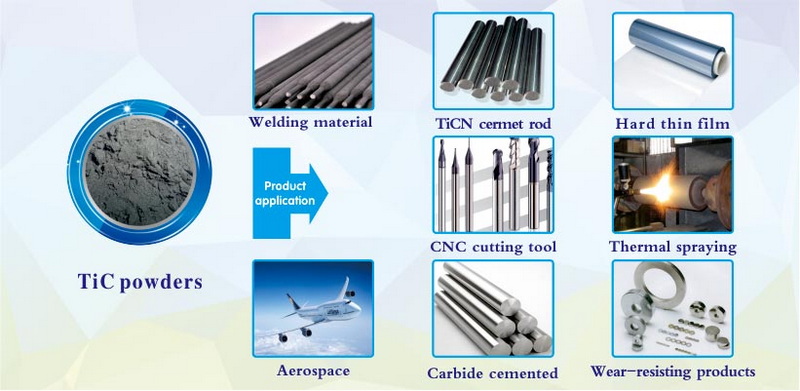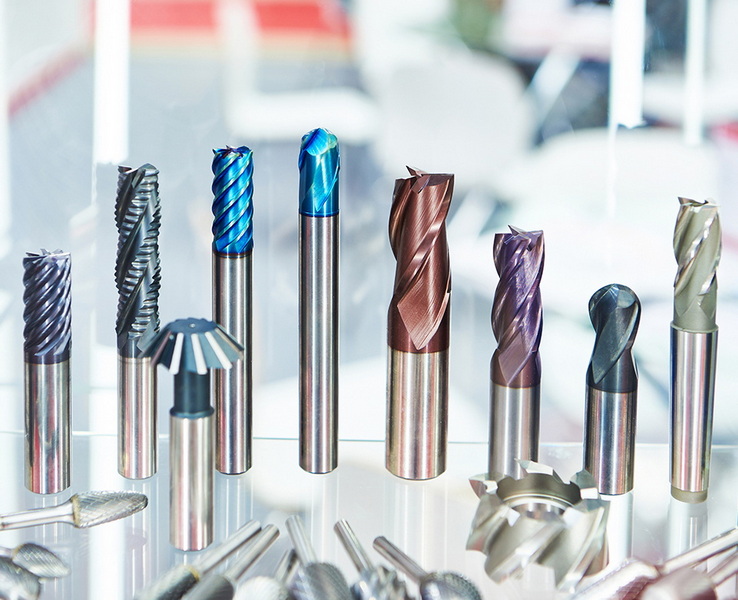Content Menu
● Introduction to Tungsten Carbide
>> Properties of Tungsten Carbide
● Sharpening Tungsten Carbide
>> Methods for Sharpening Tungsten Carbide
>> Tools and Equipment Needed
● Techniques for Sharpening Tungsten Carbide
>> Step-by-Step Sharpening Process
>> Safety Precautions
● Challenges in Sharpening Tungsten Carbide
>> Solutions to Challenges
● Advanced Techniques and Considerations
>> Maintaining Tool Geometry
>> Tool Life Extension
>> Environmental Impact
● Case Studies: Industrial Applications
>> Automotive Industry
>> Aerospace Industry
● Future Developments in Sharpening Technology
>> Emerging Trends
● Conclusion
● FAQ
>> 1. What is the best method for sharpening tungsten carbide?
>> 2. Can tungsten carbide be sharpened at home?
>> 3. How often does tungsten carbide need sharpening?
>> 4. What safety precautions should be taken when sharpening tungsten carbide?
>> 5. Is laser sharpening suitable for all types of tungsten carbide tools?
● Citations:
Sharpening tungsten carbide, particularly in the context of welding, involves understanding both the material properties and the appropriate techniques for maintaining or restoring its sharpness. Tungsten carbide is renowned for its hardness and wear resistance, making it a crucial component in various industrial applications, including welding tools and machinery parts. However, sharpening it requires specialized methods due to its extreme hardness.

Introduction to Tungsten Carbide
Tungsten carbide is a composite material made from tungsten carbide particles bonded together by a metallic matrix, often cobalt. This composition provides exceptional hardness and resistance to wear, making it ideal for cutting tools, drill bits, and other wear-resistant parts. In welding, tungsten carbide is sometimes used to enhance the durability of welds by incorporating tungsten carbide particles into the weld pool.
Properties of Tungsten Carbide
- Hardness: Tungsten carbide has a hardness range of 89 to 95 on the Rockwell A scale, significantly harder than most metals.
- Wear Resistance: It offers excellent resistance to abrasive wear, making it suitable for high-wear applications.
- Corrosion Resistance: Tungsten carbide also exhibits good resistance to corrosion, though this can vary depending on the specific composition.
Sharpening Tungsten Carbide
Sharpening tungsten carbide requires tools that are harder than the material itself. Diamond is one of the few materials capable of effectively sharpening tungsten carbide due to its superior hardness.
Methods for Sharpening Tungsten Carbide
1. Diamond Grinding Wheels: These are the most effective tools for sharpening tungsten carbide. Diamond grinding wheels provide high precision and are durable, allowing for repeated use without significant wear.
Benefits:
- Precision: Maintains the sharpness and angle of the cutting edge.
- Durability: Can be used multiple times without noticeable wear.
- Efficiency: Quickly restores sharpness.
2. Laser Sharpening: This is a modern, non-contact method that uses a focused laser beam to vaporize small amounts of material, restoring the edge without physical contact.
Benefits:
- Precision: Restores blades to their original sharpness with high accuracy.
- No Physical Wear: Eliminates the risk of mechanical damage.
- Speed: Suitable for high-production environments.
3. Wet Grinding: Using an automatic grinder with a diamond wheel in a wet environment can provide precise sharpening while minimizing heat buildup.
Tools and Equipment Needed
- Diamond Grinding Wheels: Essential for sharpening tungsten carbide.
- Laser Sharpening Machines: For advanced, high-precision sharpening.
- Automatic Grinders: For wet grinding processes.
- Zhuk Fixed Angle Knife Sharpener: Useful for maintaining specific angles during sharpening.
- Digital Angle Gauge: Ensures precise control over the sharpening angle.
Techniques for Sharpening Tungsten Carbide
Step-by-Step Sharpening Process
1. Assess the Tool: Check if the tungsten carbide tool needs sharpening. A dull tool may not reflect light well or may show signs of wear when scraped gently with a fingernail.
2. Prepare the Equipment: Ensure the sharpening tool, such as a diamond grinding wheel, is securely in place and properly aligned.
3. Sharpen the Edge:
- For diamond grinding, apply gentle pressure and maintain the desired angle.
- For laser sharpening, align the laser beam with the edge and initiate the process.
4. Polish the Edge: Use finer grits or diamond lapping films to polish the edge, enhancing its sharpness and finish.
Safety Precautions
- Protective Gear: Wear safety glasses and gloves to protect against debris.
- Ventilation: Ensure good ventilation to avoid inhaling dust particles.
- Cooling: Use cooling systems or wet grinding to prevent overheating.
Challenges in Sharpening Tungsten Carbide
Sharpening tungsten carbide can be challenging due to its hardness and the potential for overheating during the sharpening process. Overheating can cause damage to the tool or lead to the formation of unwanted compounds on the surface.
Solutions to Challenges
- Use of Diamond Tools: Ensures effective sharpening without excessive wear on the sharpening tool.
- Cooling Systems: Prevents overheating by maintaining a controlled temperature environment.
- Professional Assistance: For complex or high-precision sharpening tasks, seeking professional help is advisable.

Advanced Techniques and Considerations
Maintaining Tool Geometry
Maintaining the correct geometry of the tool is crucial for optimal performance. This includes ensuring that the sharpened edge maintains its original angle and shape. Incorrect angles can lead to reduced tool life and efficiency.
Tool Life Extension
Proper sharpening and maintenance can significantly extend the life of tungsten carbide tools. Regular sharpening prevents excessive wear, reducing the need for frequent replacements.
Environmental Impact
The sharpening process should be conducted in an environmentally responsible manner. This includes proper disposal of waste materials and minimizing dust emissions through effective ventilation systems.
Case Studies: Industrial Applications
In industrial settings, tungsten carbide tools are widely used in machinery and equipment. For instance, in the manufacturing of automotive parts, tungsten carbide cutting tools are essential for precision cutting and drilling operations. Regular sharpening of these tools ensures consistent quality and productivity.
Automotive Industry
- Precision Cutting Tools: Tungsten carbide tools are used for cutting and drilling operations in automotive manufacturing.
- High-Speed Machining: These tools are capable of withstanding high-speed machining processes, maintaining precision and efficiency.
Aerospace Industry
- Advanced Materials: Tungsten carbide is used in the aerospace industry for cutting tools that handle advanced materials like titanium and composites.
- High-Temperature Applications: Its high melting point makes it suitable for applications involving high temperatures.
Future Developments in Sharpening Technology
Advancements in sharpening technology are continually improving the efficiency and precision of sharpening processes. For example, advancements in laser technology have made it possible to sharpen complex geometries with high accuracy.
Emerging Trends
- Nanostructured Diamond Coatings: These coatings are being developed for improved wear resistance and sharpening efficiency.
- Robotics and Automation: Automated sharpening systems are becoming more prevalent, enhancing consistency and reducing labor costs.
Conclusion
Sharpening tungsten carbide requires careful consideration of the material's properties and the appropriate techniques to maintain its sharpness. Diamond grinding wheels and laser sharpening are among the most effective methods for sharpening tungsten carbide tools. Understanding the challenges and taking necessary precautions can help ensure successful sharpening processes. Additionally, maintaining tool geometry and extending tool life through proper maintenance are key to maximizing the efficiency and lifespan of tungsten carbide tools.

FAQ
1. What is the best method for sharpening tungsten carbide?
The best method for sharpening tungsten carbide is using diamond grinding wheels due to their hardness and precision.
2. Can tungsten carbide be sharpened at home?
While it is possible to sharpen tungsten carbide at home with the right tools, such as diamond lapping films, professional sharpening services are often recommended for optimal results.
3. How often does tungsten carbide need sharpening?
Tungsten carbide tools need sharpening when they show signs of wear, such as a dull appearance or reduced performance. The frequency depends on usage and application.
4. What safety precautions should be taken when sharpening tungsten carbide?
Wear protective gear, ensure good ventilation, and use cooling systems to prevent overheating and exposure to dust particles.
5. Is laser sharpening suitable for all types of tungsten carbide tools?
Laser sharpening is highly accurate but requires specialized equipment and is typically used in industrial settings for complex or high-precision sharpening tasks.
Citations:
[1] https://www.instructables.com/Perfectly-sharpen-tungsten-for-TIG-welding/
[2] https://passionblade.com/what-is-the-best-way-to-sharpen-tungsten-carbide-blade/
[3] https://carbideprocessors.com/pages/brazing-carbide/welding-tungsten-carbide.html
[4] https://www.youtube.com/watch?v=KRk9_88LfXs
[5] https://www.carbide-part.com/carbide-machining/carbide-grinding-machine/
[6] https://www.linkedin.com/pulse/how-sharpen-tungsten-carbide-shijin-lei
[7] https://lineagemet.com/welding/
[8] https://www.reddit.com/r/sharpening/comments/zotngn/poly_hedral_tungsten_carbide_is_a_sharpening/
[9] https://www.globalgilson.com/vibrating-cup-pulverizer-tungsten-carbide-grinding-set
[10] https://www.zeus-techno.com/news/tungsten-carbide-dies-grinding/
[11] https://www.youtube.com/watch?v=AuHQY300Aac
[12] https://www.reddit.com/r/sharpening/comments/1g6gq3h/how_to_sharpen_tungsten_carbide_cutting_tools/
[13] https://www.alibaba.com/showroom/welding-carbide-tips.html
[14] https://www.reddit.com/r/Welding/comments/wqld3s/how_do_you_guys_sharpen_your_tungstens/
[15] https://stock.adobe.com/search?k=tungsten+carbide
[16] https://www.gettyimages.hk/%E5%9C%96%E7%89%87/tungsten-carbide
[17] https://www.shutterstock.com/search/sharpening-machine
[18] https://stock.adobe.com/search?k=carbide
[19] https://www.youtube.com/watch?v=hc14WkTRubQ
















